 |
Intel NAS Performance Test Toolkit:
This synthetic NAS benchmark network tool has been around for a while and thou no longer supported by Intel is still used today as a measuring stick for what a particular NAS device can do in pseudo real world situations. In this test, I limited the host system to 2GB using the advanced settings in msconfig to ensure that the test results were not skewed by large amounts of DRAM installed. Additionally, I chose to go a different way than other sites while performing these benchmarks, as I wasn’t just concerned about raw performance, but also dependability and performance when the unit was in a potential degraded state. All too often is the case that reviewers and consumers get too focused on what a particular unit can do in a “perfect” world, but neglect some of the “what if’s” life likes to hand us from time to time. I suspect anyone looking at a 4+ drive bay NAS device is not only purchasing it for performance, but also for redundancy (aka redundant RAID configurations) for added protection. Therefore, I decided not only would I run these benchmarks when everything was normal, but I also intentionally fail redundant RAID types and record the performance while the system was in a degraded state (missing a member) and while it was rebuilding. If you ever lose a drive, it is important to understand what changes to performance should be expected while your system is in a degraded state, as some applications and use cases are more performance sensitive than others. Also, it’s equally important to ensure that it handles these failures as gracefully as possible with no interruption in service. Since the Thecus N550 is targeted for SMB customers, I believe testing the device in this manner is not only prudent, but relevant. It is important to note, this testing methodology isn’t shared by many other review sites, so from a comparative standpoint, I would caution you from not making any knee jerk conclusions. Any device capable of RAID is going to have similar challenges and similar impacts to function and performance; these are not unique to Infortrend products.
HD Video Playback:
 |
2x HD Playback:
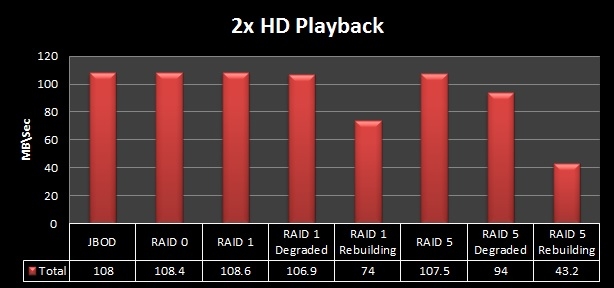 |
4x HD Playback:
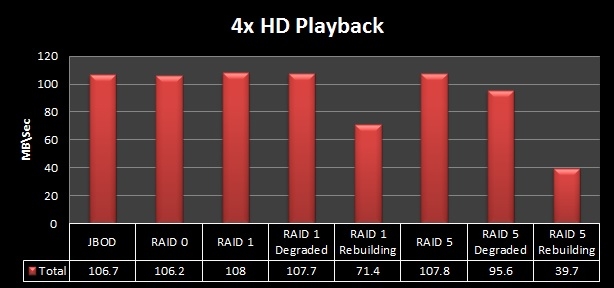 |
HD Video Record:
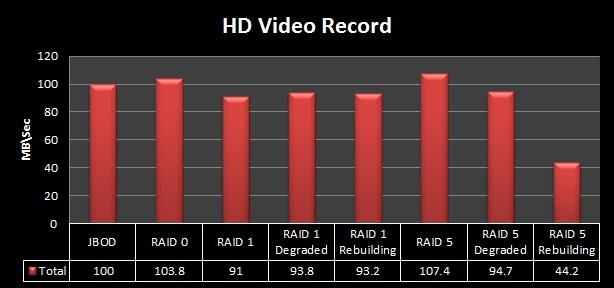 |
HD Playback and Record:
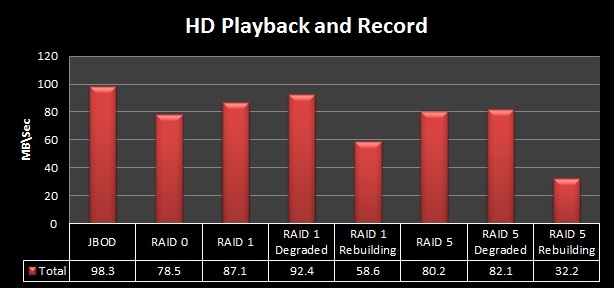 |
Content Creation:
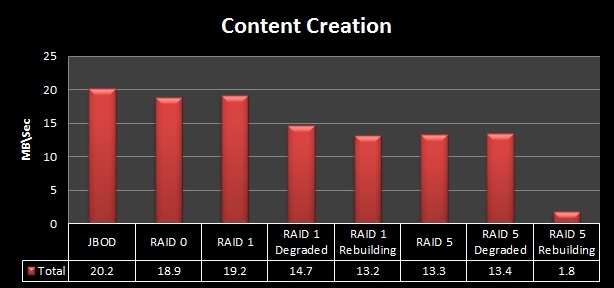 |
Office Productivity:
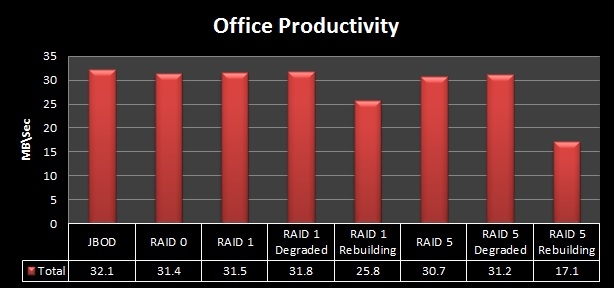 |
File Copy to NAS:
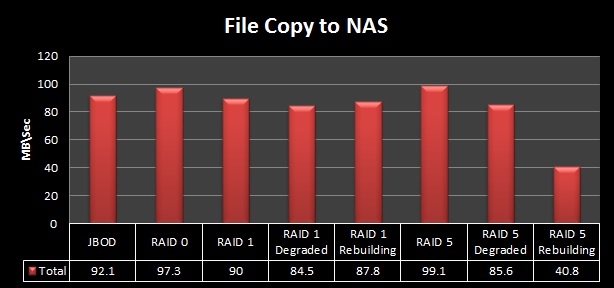 |
File Copy from NAS:
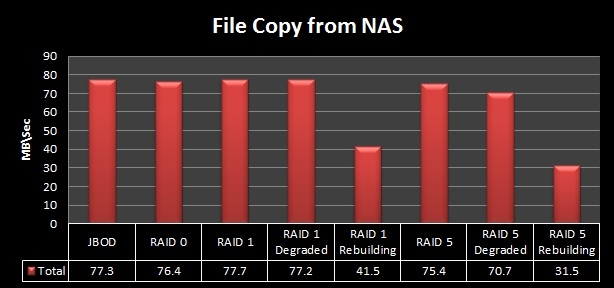 |
Directory Copy to NAS:
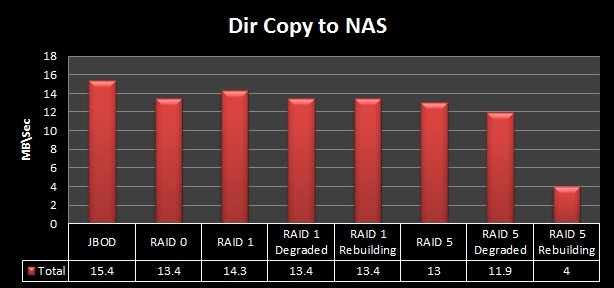 |
Directory Copy from NAS:
 |
Photo Album:
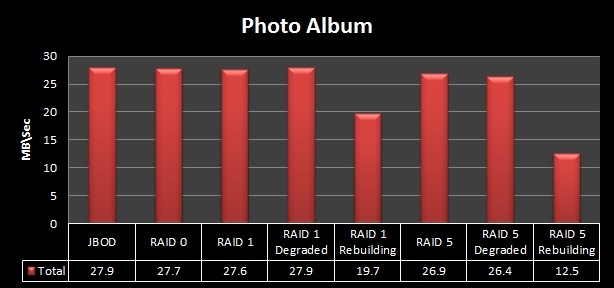 |
Looking at the results cumulatively, the Thecus was impressively consistent. By that, I mean, when configured storage was running in an optimal state, the performance was near identical across several storage configurations. It’s good to see that there were no oddities in performance in relation to the storage configuration. As to the performance numbers specifically, the Thecus is easily one of the higher performing NAS units we have tested here at Techwarelabs. The only area that the Thecus N5550 consistently showed a deficiency, was I/O occurring during a redundant RAID rebuild. This is to be expected to some degree as the CPU is not only serving I/O requests, but also rebuilding the RAID data concurrently. So where this is expected, across all the tests the performance drop was nearly 50% consistently with RAID 5 (where data is being rebuilt from parity data). Performance drop for a redundant RAID 1 wasn’t as consistent, but can be seen in some tests. This is something to be mindful of depending on how you wish to deploy the Thecus N5550 and what applications and use case scenarios you intend to run, as there may be an occasion where you will have to run while your redundant RAID is rebuilding and this may become a real factor. I will say that the Thecus had some of the slower rebuild times in comparison to some other NAS vendor products we have tested. With longer rebuild times, the measured lower performance while rebuilding will have a compound negative effect.
It’s also worth noting that during this testing, I failed multiple redundant RAID configs, and the Thecus N5550 handled the failures without issue and no interruption of I/O. Also, the rebuilding (although a little lengthy) occurred as expected and I could see the rebuilding progress percentage within the web UI.

[…] Thecus NAS 5550 Server Review @ TechwareLabs […]
[…] Thecus NAS 5550 Server Review @ TechwareLabs […]
[…] Thecus NAS 5550 Server Review @ TechwareLabs […]
[…] Thecus NAS 5550 Server Review @ TechwareLabs […]
[…] Thecus NAS 5550 Server Review at TechwareLabs […]